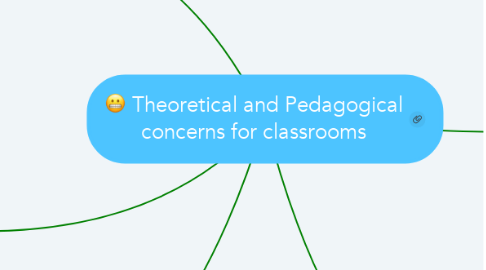Theoretical and Pedagogical concerns for classrooms
by Ruth Estrella

1. Making better use of existing materials
1.1. Learners learn better byreflect upon their learning in discussions with teachers and peers, in diaries and reports.
1.2. When a CALL program is not suitable, it can be adaptad andlearners can come up with a set of questions that can help guide another user.
1.3. Adding layers of tasks to materials can make them more challenging and appropriate for the user.
2. Establishing on enviroment where CALL may take place
2.1. The typical library type school enviroment is not suitable for CALL
2.2. Individual laptop ownrship and wireless networks can allow for flexible learning where students are free to study anywhere.
2.3. If computer access is restricted in terms of time or space, CALL is discouraged. If an enviroment is unwellcoming to collaboration, it discorages learning and collaborative activities.
3. By: Ruth Estrella Sotomayor
4. Computers, software and www-based services are not seen solely as positive agents of change in the classroom; they also face criticism. Young and second language learners lacking dictionary and library search skills, a multimedia resource may prove to be too seductive and information source. The result is a delay or even complete omission of their learning of traditional and useful information search skills, just like electronic calculators has discouraged some learners's basic numeracy skills.
5. Software objectives
5.1. Offer different interface to accomodate different lerning styles.
5.2. Involve lerners in the decision making process. Learners decide on what kind of CALL software programs to include in a classroom
5.3. Students become respobnsable for their own learning and increse their intrinsic motivation


